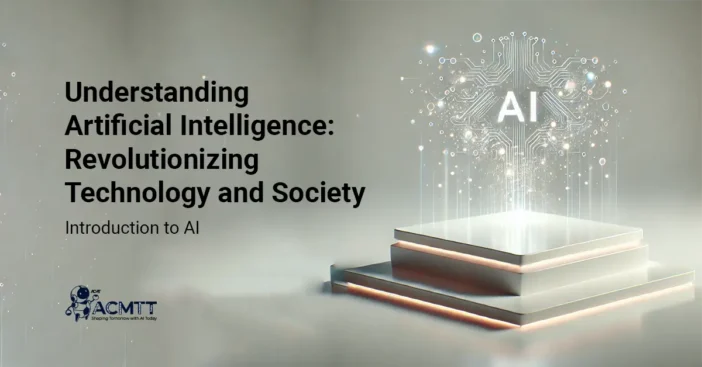
Understanding Artificial Intelligence
Artificial Intelligence (AI) is transforming industries and societies at an unprecedented rate. AI refers to the development of computer systems capable of performing tasks that typically require human intelligence. These tasks include visual perception, speech recognition, decision-making, language translation, and more. AI systems learn and adapt over time, making them increasingly efficient and intelligent.
What is Artificial Intelligence?
At its core, AI is about creating machines that can think and act like humans. This field encompasses a wide range of technologies, including machine learning, deep learning, and neural networks. AI systems process large amounts of data, recognize patterns, and use this information to make predictions or decisions. The applications of AI are vast, ranging from healthcare diagnostics and autonomous vehicles to virtual assistants like Siri and chatbots.
The Evolution and Impact of AI
AI has evolved significantly since its early conception. Initially, it involved basic problem-solving tasks. Now, with the advent of machine learning and deep learning, AI can perform highly complex tasks, such as diagnosing diseases and driving cars autonomously. Sundar Pichai, CEO of Google, stated, “AI is one of the most profound things we’re working on as humanity. It’s more profound than fire or electricity”
This highlights the monumental role AI will play in shaping the future.
Applications of AI
- Healthcare: AI algorithms can analyze medical data, helping doctors diagnose diseases more accurately and even predict patient outcomes.
- Transportation: Autonomous vehicles use AI to navigate roads, avoiding obstacles and making split-second decisions.
- Customer Service: Chatbots and virtual assistants, powered by natural language processing (NLP), provide 24/7 support to users.
- Finance: AI is used in fraud detection, risk management, and automated trading systems, optimizing financial operations.
Key Quotes from Influential Figures on AI
“AI is a fundamental risk to the existence of human civilization.” Musk has expressed concerns about the unchecked growth of AI, urging caution and regulation.
– Elon Musk
“The development of full artificial intelligence could spell the end of the human race.” He believed that, while AI could benefit humanity, it also posed existential risks.
– Stephen Hawking
“A breakthrough in machine learning would be worth ten Microsofts.” Gates emphasized the massive economic and technological potential of AI.
– Bill Gates
Challenges and Ethical Considerations
Despite its potential, AI comes with challenges. Ethical considerations around privacy, data security, and bias are prominent. AI systems often rely on large datasets, which can be misused if not properly managed. Moreover, the deployment of AI raises concerns about job displacement, as automation could replace roles traditionally filled by humans. The ethical development and regulation of AI technologies are crucial to ensuring that its benefits outweigh the risks.
The Future of AI
AI’s future is promising but uncertain. As technologies evolve, AI will likely become even more integrated into daily life, enhancing everything from healthcare to education and entertainment. However, the balance between innovation and regulation will be vital. As Google and other tech giants advance AI capabilities, the focus remains on creating safe, ethical, and transparent systems that serve humanity’s best interests
Conclusion
AI is not just a technological trend; it’s a revolution reshaping every aspect of society. From healthcare to finance, its impact is profound and growing. As society navigates this transformation, understanding the basics of AI, its applications, and its implications is crucial.
If you’re looking to explore more about the role of AI in everyday life and its future, staying updated with the latest advancements and ethical discussions is essential.
Source: Google Blog and Hubspot
Leave a Reply